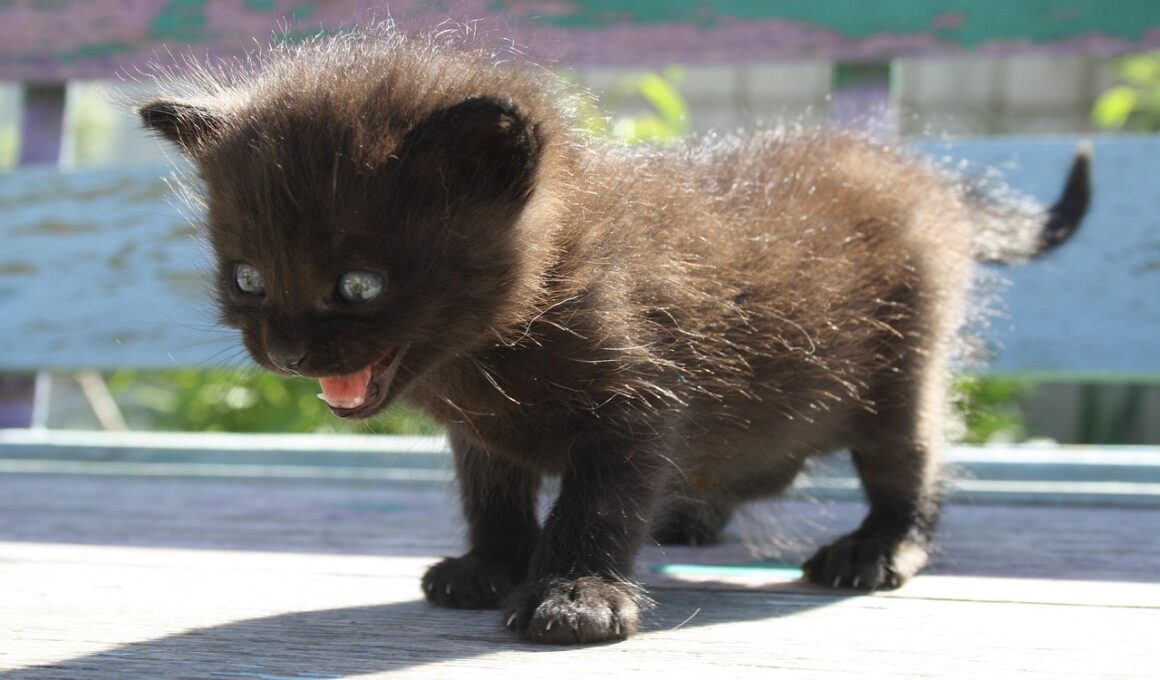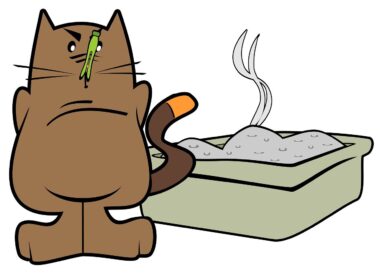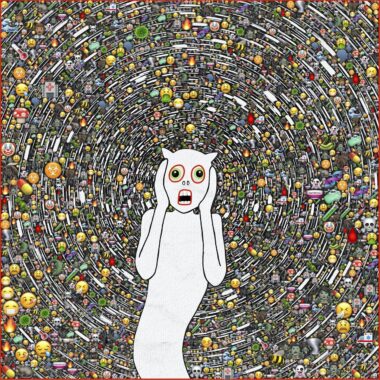Signs Your Cat’s Anxiety is Affecting Their Health
If you have a cat, it is essential to understand that anxiety can significantly impact their health. Cats are sensitive creatures and may display physical symptoms when they are experiencing anxiety. Observing your cat’s behavior is the first step in identifying potential health issues. Watch closely for excessive grooming, as it can lead to bald spots or skin irritations. Additionally, a change in appetite, such as eating less or overeating, could indicate stress levels affecting their physical well-being. Litter box issues can also arise when cats are anxious. Instances of urinating outside the box may suggest emotional distress. Moreover, notice if your cat hides or isolates themselves more often; these behaviors can signify underlying anxiety. Frequent vocalizations such as meowing or growling may denote discomfort or stress. Keep an eye on their energy levels as well. Overly aggressive behaviors can lead to injuries for both the cat and people in the home. Monitoring these signs of anxiety is critical for ensuring your cat’s health remains optimal as mental health is strongly linked to physical wellbeing.
Understanding the root causes of anxiety in cats is crucial for effective management. Environmental changes, such as moving, introducing new pets, or changes in routine, can trigger anxiety in cats. Additionally, traumatic experiences, such as loud noises or illness, can lead to lasting anxiety issues. Providing a stable environment is essential in helping your cat feel secure. Utilizing calming products like pheromone diffusers and providing safe spaces where they can retreat may also alleviate anxiety levels in your feline friend. Socialization plays a significant role in your cat’s ability to cope with stress. Gradually exposing them to different people and situations can enhance their confidence. Interactive toys and regular playtime can keep them mentally engaged, thereby reducing stress and anxiety. Maintaining a structured feeding schedule can also contribute to a sense of security for your cat. If anxiety continues to affect your cat’s behavior, consider consulting a veterinarian who may recommend behavioral therapy or medication. Recognizing the signs of anxiety early leads to timely intervention and helps maintain your cat’s overall health.
Stress can also manifest in physical ways, leading to serious health issues in cats. One common problem is gastrointestinal upset. Cats under stress may experience diarrhea or vomiting, indicating that anxiety is influencing their digestive health. Additionally, some may develop urinary tract issues, such as cystitis, characterized by frequent attempts to urinate, often leading to more serious complications if left untreated. Regular veterinary check-ups are vital for monitoring your cat’s health, particularly if you notice acute behavioral changes that persist over time. Weight changes, either loss or gain, may constitute another consequence of anxiety. Cats tend to change their eating habits when they are stressed, which can lead to more pronounced health issues. Dental problems can also escalate in anxious cats if they are prone to excessive chewing or licking. Another symptom of anxiety is aggression, which not only affects your cat’s well-being but can create tension in multi-pet households. Taking proactive measures to address any signs of stress is important for maintaining a happy and healthy cat environment that promotes both mental and physical health.
Creating a Safe and Comfortable Environment
Creating a safe and comforting environment for your cat is vital to help alleviate anxiety and promote their well-being. A designated space that is quiet, warm, and free of disturbances can be a sanctuary for your cat when they feel overwhelmed. Enhancing this space with cozy bedding, their favorite toys, and adequate hiding spots can encourage them to retreat when necessary. Furthermore, incorporating vertical spaces, like cat trees or shelves, provides your cat with options to observe their surroundings from a height, giving them a sense of security. Routine can greatly impact a cat’s comfort. Establish regular feeding and play times, which help create predictability, reducing stress levels significantly. Avoid sudden changes in the household, as they can disrupt your cat’s sense of stability. Additionally, consider utilizing calming aids such as anxiety wraps, which provide gentle pressure that can soothe anxious felines. Engaging with them through interactive play helps to strengthen your bond while distracting them from their fears. Engaging in these practices fosters a nurturing environment, enhancing your cat’s emotional health and overall happiness.
When anxiety is suspected, tracking your cat’s symptoms over time can provide valuable insight into the severity and frequency of their anxiety. Keep a journal documenting behavioral changes along with any stressors that may trigger anxiety responses. Identifying trends can help you anticipate anxious moments and take proactive measures to mitigate stressors. For some cat owners, consulting with a veterinarian or a feline behaviorist can supply tailored strategies for managing anxiety. These professionals can recommend personalized behavioral modification techniques or additional resources you may not consider. Medication may also be an option for severe anxiety cases, so it is crucial to be open to all potential solutions. Ensuring proper hydration and nutrition can influence your cat’s ability to cope with anxiety as well. High-quality cat food with specific nutrients can make a difference in mood and behavior. Make sure your cat always has access to fresh water. Engaging them in interactive feeding methods also serves as mental stimulation and encourages healthy eating habits. An effective prevention strategy is to focus not only on managing existing anxiety but also on enhancing their overall quality of life.
Signs to Watch For
Recognizing the specific signs of anxiety in your cat may contribute greatly to enhancing their health. Mood swings manifest through sudden changes in temperament or sleeping patterns. For instance, they may become more withdrawn or irritable. Increased grooming habits can lead to fur loss or skin issues, serving as a signal of stress. Furthermore, if your cat defensively swats or hisses, this behavior can be a manifestation of anxiety, especially if they were once more social. Changes in eating habits may illustrate how their anxiety creates discomfort; loss of appetite is common. Pay attention to litter box habits as well. If your cat suddenly stops using their litter box or consistently leaves messes outside of it, there might be an urgent need to address their emotional state. Moreover, be mindful of excessive vocalization, which can indicate underlying distress. These behaviors, although concerning, can provide a pathway to identify and treat anxiety. Early intervention equips you with options to assist other potential health complications caused by persistent anxiety, ensuring a happier cat well into their golden years.
In conclusion, understanding and addressing anxiety in your cat is crucial to their overall health and happiness. Be observant of their behavior, environment, and any changes that may cause stress. Through proactive management strategies, such as establishing routines and enhancing their living space, you can make a measurable difference in alleviating their anxiety. There are several products and strategies available to help calm an anxious cat; consult your veterinarian to explore the best tailored options. As a responsible cat owner, it is essential to recognize that mental health is just as important as their physical health. Therefore, maintaining open communication with your furry friend is paramount. Engage in gentle handling, low-stress interactions, and ensure you offer plenty of positive reinforcement. This will reinforce your cat’s trust in you, creating a stable relationship. Over time, with the right approaches, your cat can learn to adapt better to their environment. Fostering a relaxed atmosphere will not only improve their mood but will also contribute to a longer, healthier, and more fulfilling life. Our feline companions deserve every effort we can provide to ensure a stress-free existence.





